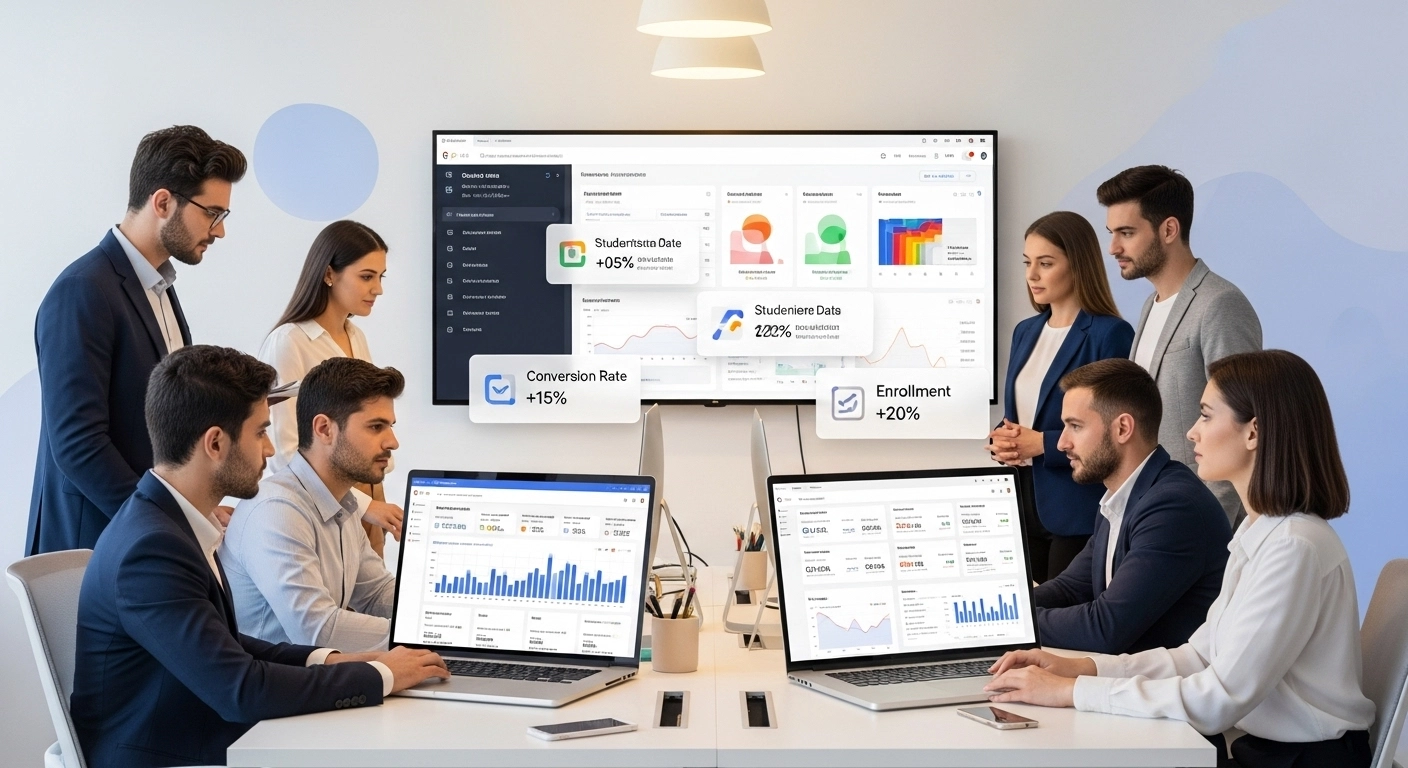The landscape of Android app development software is in a state of constant evolution, driven by technological advancements, shifting user expectations, and the increasing demand for seamless mobile experiences. As we look towards the future, several trends and innovations are poised to reshape the way Android applications are built.
The Rise of Low-Code and No-Code Platforms:
One of the most significant trends impacting Android app development software is the proliferation of low-code and no-code platforms. These platforms empower developers and even non-developers to create functional and visually appealing Android apps with minimal or no coding required.
- Accelerated Development: Low-code platforms streamline the development process by providing pre-built components, drag-and-drop interfaces, and visual workflows. This dramatically reduces development time and allows businesses to launch apps faster.
- Democratization of App Development: No-code platforms further democratize app development by enabling individuals with no coding experience to create and deploy apps. This opens up opportunities for businesses and entrepreneurs to bring their app ideas to life without relying on extensive coding expertise.
- Focus on User Experience: Low-code and no-code platforms often prioritize user experience, providing intuitive interfaces and customizable templates that ensure apps are visually appealing and user-friendly.
The Integration of Artificial Intelligence (AI) and Machine Learning (ML):
AI and ML are rapidly transforming various industries, and Android app development is no exception. These technologies enable developers to create intelligent apps that can learn, adapt, and personalize user experiences.
- Personalized User Experiences: AI-powered apps can analyze user data and behavior to deliver personalized content, recommendations, and features.
- Enhanced Functionality: ML algorithms can be integrated into apps to perform tasks such as image recognition, natural language processing, and predictive analytics.
- Automated Testing and Debugging: AI can automate testing and debugging processes, identifying potential errors and improving app quality.
The Growth of Cross-Platform Development:
Cross-platform development frameworks, such as React Native and Flutter, are gaining popularity among Android developers. These frameworks allow developers to write code once and deploy it across multiple platforms, including Android and iOS.
- Reduced Development Costs: Cross-platform development can significantly reduce development costs by eliminating the need to write separate code bases for each platform.
- Faster Development Cycles: By sharing code across platforms, developers can accelerate development cycles and launch apps more quickly.
- Consistent User Experience: Cross-platform frameworks can ensure a consistent user experience across different platforms.
The Focus on Security and Privacy:
As mobile apps become increasingly integrated into our lives, security and privacy concerns are paramount. Android developers are placing greater emphasis on building secure apps that protect user data and privacy.
- Data Encryption: Implementing robust data encryption techniques to protect sensitive user information.
- Secure Authentication: Utilizing secure authentication methods, such as biometric authentication, to prevent unauthorized access.
- Regular Security Updates: Providing regular security updates to address vulnerabilities and protect against emerging threats.
The Evolution of Development Tools and IDEs:
Integrated Development Environments (IDEs) and other development tools are constantly evolving to provide developers with more powerful and efficient tools.
- Enhanced Debugging and Testing Tools: IDEs are incorporating advanced debugging and testing tools to help developers identify and resolve issues quickly.
- Code Completion and Auto-Generation: AI-powered code completion and auto-generation features are improving developer productivity.
- Cloud-Based Development Environments: Cloud-based IDEs are becoming more prevalent, allowing developers to access their development environments from anywhere with an internet connection.
The importance of Best Mobile App Development Software:
Selecting the correct software is paramount. This will affect the efficiency of the developers, and the overall quality of the final product. The best software will be the one that is the best suited to the developers needs.
The Proliferation of Serverless Architectures:
Serverless architectures are gaining traction in Android app development, offering developers the ability to focus on front-end development without managing backend infrastructure.
- Scalability and Cost-Effectiveness: Serverless platforms automatically scale resources based on demand, reducing infrastructure costs and ensuring optimal performance.
- Reduced Development Complexity: Developers can focus on writing front-end code and business logic, while the serverless platform handles backend tasks such as server management and scaling.
- Faster Deployment: Serverless architectures enable faster deployment cycles, allowing developers to release new features and updates more quickly.
The Expansion of Augmented Reality (AR) and Virtual Reality (VR):
AR and VR technologies are becoming more accessible and integrated into Android apps, and considered to be the top Best Mobile App Development Software development
tools opening up new possibilities for immersive user experiences.
- Enhanced User Engagement: AR and VR apps can create interactive and engaging experiences that blur the lines between the physical and digital worlds.
- Innovative Use Cases: AR and VR are being used in various industries, including gaming, education, retail, and healthcare, to create innovative and compelling apps.
- ARCore and VR Platforms: Google’s ARCore and other VR platforms provide developers with the tools and resources to build AR and VR experiences for Android devices.
The Importance of Accessibility and Inclusivity:
Android developers are increasingly focusing on building accessible and inclusive apps that cater to users with diverse needs and abilities.
- Accessibility Guidelines: Adhering to accessibility guidelines, such as WCAG, to ensure apps are usable by people with disabilities.
- Inclusive Design: Designing apps with inclusivity in mind, considering factors such as color contrast, font sizes, and input methods.
- Assistive Technologies: Integrating with assistive technologies, such as screen readers and voice control, to enhance accessibility.
The Drive Towards More Efficient Resource Management:
With the ever-increasing complexity of modern Android apps, efficient resource management is crucial for optimal performance.
- Memory Optimization: Employing techniques to minimize memory usage and prevent app crashes.
- Battery Efficiency: Optimizing app performance to reduce battery consumption and extend device battery life.
- Network Optimization: Minimizing network requests and data usage to improve app responsiveness and reduce data costs.
The Growth of Collaborative Development Environments:
Cloud-based collaborative development environments are becoming increasingly popular, enabling teams to work together seamlessly on Android app projects.
- Real-Time Collaboration: Multiple developers can work on the same codebase simultaneously, improving team productivity and efficiency.
- Version Control and Code Sharing: Integrated version control systems and code sharing features facilitate collaboration and prevent code conflicts.
- Remote Development: Cloud-based environments enable remote development, allowing teams to work from anywhere with an internet connection.
The Continued Evolution of Kotlin and Jetpack Compose:
Kotlin, Google’s preferred language for Android development, and Jetpack Compose, a modern UI toolkit, will continue to evolve and improve.
- Kotlin’s Enhanced Features: Kotlin will continue to gain new features and improvements, making it an even more powerful and efficient language for Android development.
- Jetpack Compose’s Adoption: Jetpack Compose will become more widely adopted, simplifying UI development and enabling developers to create more visually appealing and responsive apps.
- Interoperability: Seamless interoperability between Kotlin and Java will continue to be a key advantage for developers.
The Focus on Data-Driven Development:
Data analytics is playing an increasingly important role in Android app development, enabling developers to make informed decisions based on user data and app performance.
- User Analytics: Tracking user behavior and app usage to identify areas for improvement and optimize user experience.
- Performance Monitoring: Monitoring app performance metrics, such as crash rates and load times, to identify and resolve issues.
- A/B Testing: Conducting A/B tests to compare different app features and designs and determine which performs best.
The future of Android app development software is one of constant innovation and evolution. By embracing these trends and technologies, developers can create more powerful, user-friendly, and secure Android applications that meet the evolving needs of users and businesses.












Leave a Reply